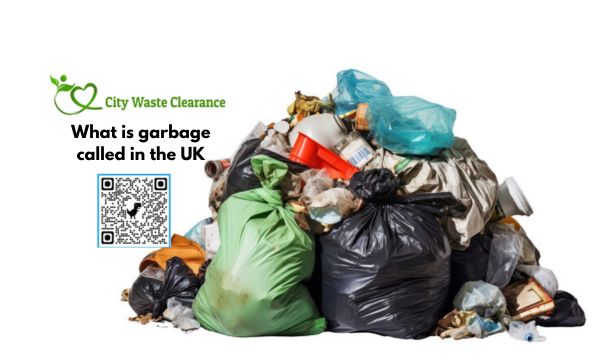In the UK, garbage is called rubbish. It is also commonly referred to as waste or refuse.
Rubbish is a term widely used in the UK to describe everyday waste. Households and businesses generate various types of rubbish, such as food scraps, packaging, and old items. Proper rubbish disposal is crucial for maintaining cleanliness and hygiene. Local councils provide bins and regular collection services to manage rubbish effectively.
Recycling initiatives are also in place to reduce the amount of waste sent to landfills. Understanding the terminology and disposal methods helps residents contribute to a cleaner environment. Effective waste management ensures sustainable living and protects natural resources for future generations.
British Waste Terminology
In the UK, garbage is often called rubbish. Some people use the word trash. Refuse is another term used. Litter refers to waste in public places. Waste is a general term for all types of garbage.
Different regions in the UK have unique terms. In Scotland, people say dross. In Northern Ireland, the word scrap is common. The term bin is used for garbage cans. In Wales, people use waste often. Each region has its own slang for garbage.
Household Waste
In the UK, garbage is called rubbish. People put their rubbish in bins. Rubbish includes leftover food, broken items, and old clothes. The local council collects the rubbish weekly. Many homes have different bins for different types of rubbish.
Recycling is very important in the UK. People separate their rubbish into recycling bins. This helps save the environment. Glass, paper, and plastic go into different bins. Recycling trucks collect these items. They take them to special recycling centers.
Public Waste
In the UK, garbage is commonly referred to as “rubbish” or “waste. ” Local authorities manage the collection and disposal. Understanding these terms can help in navigating British waste management systems effectively.
Litter
Litter refers to waste discarded in public places. Items like plastic bottles, candy wrappers, and coffee cups are common. It is illegal to drop litter on the streets. Keeping public areas clean is very important. Littering harms wildlife and the environment.
Street Cleaning
Street cleaning is essential to maintain clean urban areas. Workers use brooms and machines to clear rubbish. Local councils are responsible for street cleaning. They also provide bins for public use. Regular cleaning helps prevent pests and diseases.
Commercial Waste
Trade waste refers to rubbish produced by businesses. This includes packaging, food waste, and paper. Businesses are responsible for disposing of their own waste. Proper disposal ensures a clean environment.
Industrial waste is generated by factories and plants. It includes chemicals, metals, and construction debris. These wastes can be hazardous. Safe disposal methods are necessary to protect public health.
Special Waste Categories
Hazardous waste includes items like batteries, paint, and chemicals. These can harm people and the environment. Proper disposal is very important. Never throw hazardous waste in regular bins. Special centers handle this type of waste.
Electronic waste, or e-waste, includes old computers, phones, and TVs. These items contain toxic materials. Recycling them helps keep harmful substances out of landfills. Many stores offer e-waste recycling programs. You can also take e-waste to local recycling centers.
Waste Disposal Methods
People throw away a lot of rubbish every day. This rubbish goes to landfills. Big machines push the garbage into the ground. Then they cover it with soil. This helps keep the area clean. But landfills can create problems. They can fill up quickly. They can also pollute the soil and water. It is important to manage landfills carefully.
Incineration is another way to get rid of rubbish. It involves burning waste at high temperatures. This process reduces the amount of waste. It can also produce energy. The heat from burning can create electricity. But incineration has downsides too. It can release harmful gases into the air. Incineration plants must follow strict rules to keep the air safe.
Conclusion
Understanding the term “garbage” in the UK is crucial for effective communication. Whether it’s “rubbish,” “waste,” or “trash,” knowing local terminology helps. This knowledge can improve your interactions and ensure you dispose of waste correctly. Embrace these differences and contribute to cleaner, greener communities in the UK.


